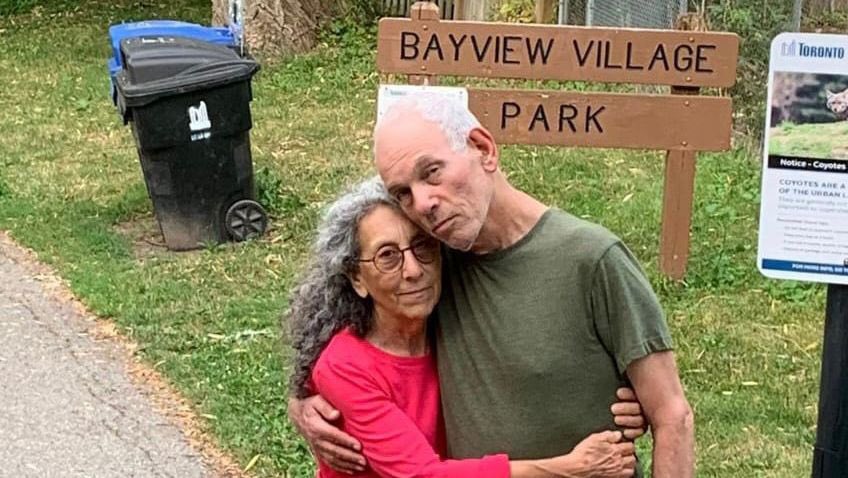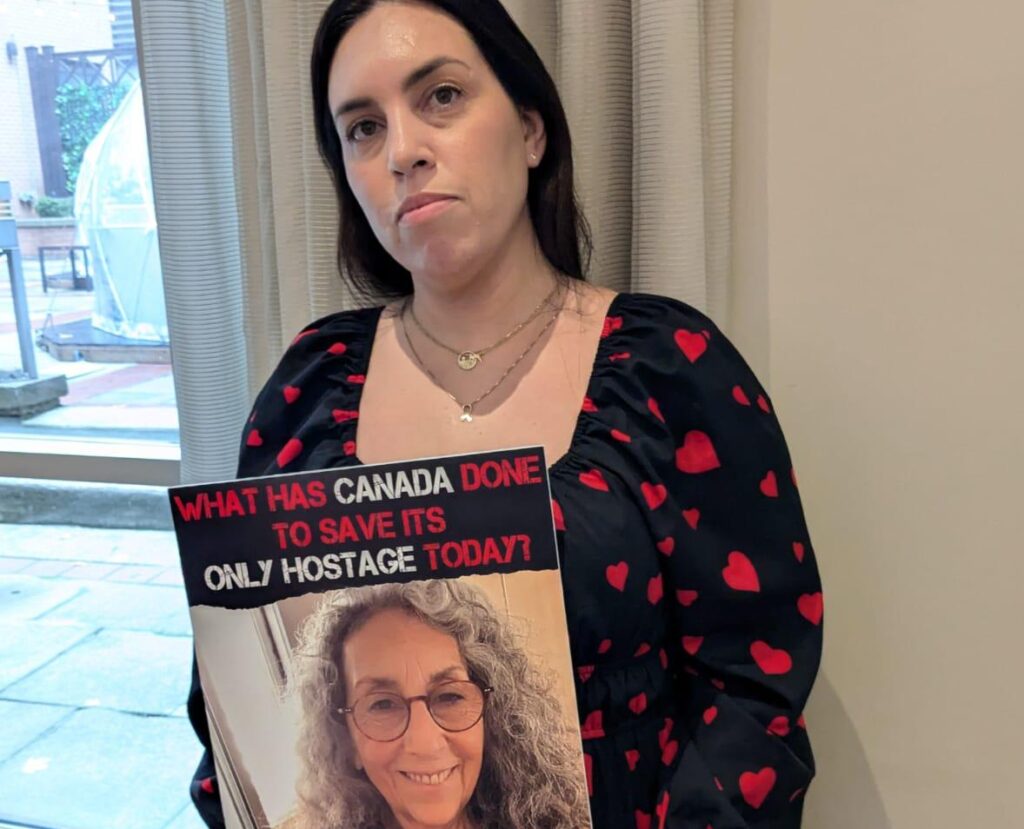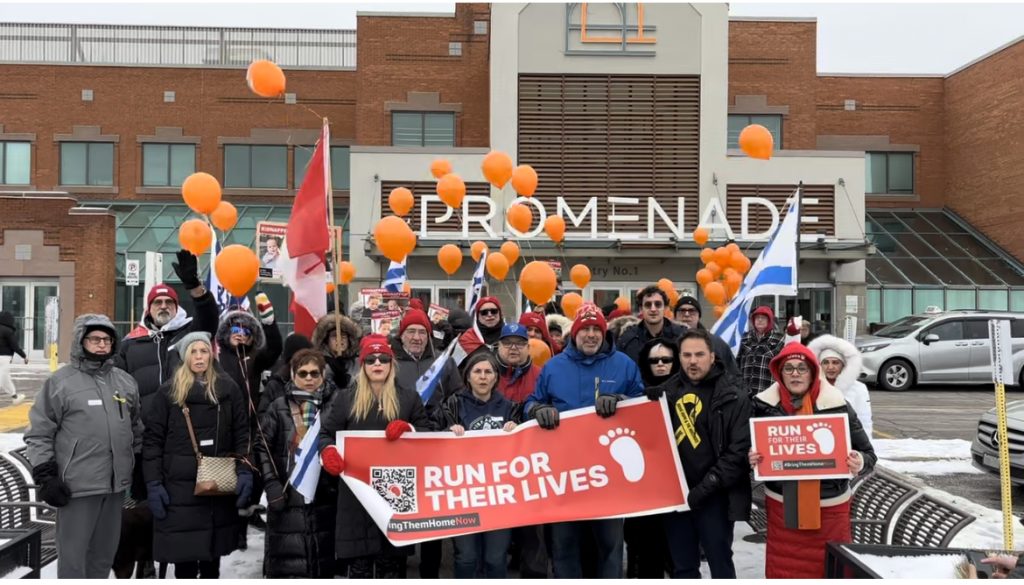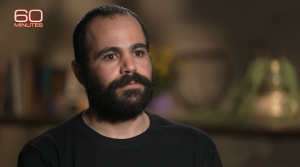Iris Weinstein Haggai watched the release of three Israeli women hostages from Gaza on Jan. 19 while in Washington, D.C.
In one word, she found the experience “bittersweet.”
Her parents were killed in the Oct. 7 Hamas attacks on their home in Kibbutz Nir Oz. The bodies of Gadi Haggai and Judih Weinstein Haggai were taken to Gaza, where they have been kept as bargaining chips for over 15 months.
Gadi had American and Israeli citizenship, while Judih was born in the U.S. but grew up in Canada.

Under a negotiated ceasefire and hostage deal, the first three hostages—Emily Damari, Romi Gonen and Doron Steinbrecher—were returned to Israel. The IDF also recovered the body of soldier Oron Shaul, who was killed in Gaza in 2014.
The agreement states that 33 hostages—women, children and the elderly—are to be released over the next few weeks. Not all of them have been confirmed to be alive.
The timing of the release of the remaining 65 hostages, including the bodies of Iris’s parents, are to be negotiated in a second round, which has yet to begin.
“I have to be cautious. My heart is breaking every single day,” she said in a phone interview with The CJN on Jan. 19. “Even today, I was expecting to see my friends on the list and I’m very happy for the ones who are coming out, for their families. Of course, I’m happy for everyone who is free from that hell, but it’s bittersweet because you want your own people to come out.
“There are still 29 people from my community, Kibbutz Nir Oz, who are still held hostage, so this is far from over.”
Iris’s parents were killed Oct. 7, during their regular early morning walk near the kibbutz. While the family knew that Gadi had been killed that morning, it was not until December 2023, several months after the attacks, that they learned that Judih had also died that day.

“If I’m completely honest, of course I’m happy that whoever gets out of that nightmare, the underground torture dungeons in Gaza. I’ve come to know the families, it’s been 471 days. But it also brings me back to the last (hostage release) deal in November 2023 when I waited every single night for my mom’s name to be on the list and every night I would get a ‘no’. Not only my parents are held hostage, but my friends are currently there.
“So while I’m so, so happy to see Romi and Emily and Doron come out, I’m also heartbroken that my friend Shiri Bibas and her two children are not coming out.”
Bibas and her two sons, Kfir, who celebrated his second birthday this week, and Ariel, now 5, were kidnapped from Kibbutz Nir Oz, along with Shiri’s husband Yarden. Her parents were killed in the attack.
Iris, who now lives in Singapore with her young family, was in D.C. this weekend for the presidential inauguration of Donald Trump. She has travelled numerous times to Washington, as well as Ottawa, to press for the release of her parents and other hostages since Oct. 7, 2023.
She found American politicians have been willing to listen to the hostage families—and that it was “inspiring” that the outgoing Biden administration and the incoming Trump one worked together to get Hamas to the negotiating table.
Trump had said “all hell will break out” if the hostages were not released before his Jan. 20 inauguration.
“There’s a reason this deal is happening, and hopefully we’ll see its completion, because of what President Trump said. This is not me taking a political stance,” Iris said. “Once he finally said something about these terrorists releasing these hostages, things started happening. It’s very sad to me that this is the first world leader to hold these terrorists accountable.”
Iris has met with Justin Trudeau and Mélanie Joly, pleading with the top Ottawa offices to pressure the International Red Cross to visit the hostages, and confirm who was even alive. However, the Liberal politicians have been less transparent and helpful than their American counterparts—even in the case of her mother, who is the only remaining Canadian hostage.
“Even a few days ago when Trudeau put out a statement about how he accepts the ceasefire, he didn’t even mention my mom. It’s been very, very disappointing.”
Sunday night, a social media posting attributed to Trudeau did call for Hamas to return the body of Judih Weinstein Haggai to her family.
I am relieved to hear that three hostages have been returned to Israel under the ceasefire agreement.
— Justin Trudeau (@JustinTrudeau) January 20, 2025
But this is not the end. Hamas must release every hostage — including the body of Judih Weinstein to her family. More is needed and the ceasefire must be upheld to the fullest…
The fate of Judih and the Bibas family was also on the mind of Maureen Leshem, the Canadian cousin of hostage Romi Gonen, kidnapped from the Nova music festival.
In a news conference in Toronto on Sunday, she reflected on the family’s gratitude for Romi’s return—after over a year of tireless advocacy—as well as the plight of the remaining hostages.
“We are grateful to at last be liberated from 15 months of agonizing torment and uncertainty—a gruelling path that has pushed us beyond our limits, both physically and emotionally. Hope became our greatest source of power, as well as our heaviest burden. It has been an exhausting and punishing experience that I would not wish on anyone,” Leshem said, reading a prepared statement.
“I am deeply grateful to every single person who embraced Romi and stood by us in our fight for her freedom—everyone who followed her plight closely, shared her story widely, sent heartfelt messages of hope, and prayed tirelessly for her safe return. I am thankful for every person who recognized and validated the undeniabletruth of what she has endured.”
Leshem also recalled some of the other hostages. “And we must remember that there are still 94 hostages trapped in Hamas captivity—among them, Canadian citizen Judih Weinstein, a 2-year-old toddler and a 5-year-old child—in urgent need of rescue. We must speak up and demand their freedom, too. What kind of world do we create if we fail to fight for the innocent?”
The Bibas children were also on the minds of roughly 80 people who came to the Run for Their Lives rally in Thornhill, Ont., a weekly walk to keep the hostages’ plight in the public eye. Many in the group carried pictures of the boys, or orange balloons reminiscent of the children’s bright-red hair.

“There are no prerequisites required for supporting this cause, no prerequisite required for being outraged that a baby who was stolen at 9 months old will soon turn two in captivity,” organizer Michelle Factor told the group gathered in the lobby of the Promenade Shopping Centre, preparing to walk a kilometre in frigid temperatures.
One of the walkers, Avishag Campbell, said she was buoyed by the news the three women had been freed. “It’s exciting news, but I think the price is very high. I’m happy for the family, I’m not really sure of the damage it’s caused. It’s going to be a very, very long rehabilitation, if it can be rehabilitated.”
As part of the hostage release agreement, Israel is set to free up to 1,900 prisoners and detainees, some of who have been convicted of serious crimes against Israelis.
“But we’re a people of life,” Campbell said. “We have to sacrifice a lot for one life.”
The hostage release agreement has been controversial in Israel, as some fear it will let Hamas regain control of the Gaza Strip.
“The deal is horrible,” Iris Weinstein Haggai agrees. “But you cannot have a good deal with terrorists,” she says about the agreement that she hopes will eventually see her parents’ bodies returned to Israel for burial.
“Israel is releasing prisoners who murdered not only Israelis, but also Palestinians. They are horrible terrorists but that’s the price Israel is willing to pay. It’s just crazy to me that we are demanding two babies and my friend Shiri Bibas and the other side is demanding murderers and rapists to come back to them.”
Negotiations for the second and third phase of hostage releases, which would include Israeli men and the bodies of those who were killed, have yet to even begin. Iris says she’s hopeful, but is aware that Israel is negotiating with a terrorist group and the situation can change rapidly.
“We don’t even know if the whole first phase will even happen. Every second you’re waiting for something to go wrong,” she said. “It’s the beginning of the end. I’m very optimistic that the process has begun. It’s more than anything that happened for the last 400-plus days.”
Iris has returned to Kibbutz Nir Oz several times since the attacks, which saw 117 members killed or taken hostage. Nearly every home on the kibbutz was damaged.
A few weeks ago, she took her family to Israel, the first time they have visited since Oct. 7. Her eldest daughter, who is 8, was heartbroken when she fully grasped that she was not going to be able to visit her grandparents on their kibbutz again.
“Being there really emphasized that she’s not going to see them again, yet she kept asking me, ‘Mommy, if we don’t have a grave how do you know they’re dead?’” said Iris.
“I should not have to answer that question and I’m going to have to answer that question until they come back.”
- PODCAST: Relatives of freed hostages talk about feeling relief—while lamenting how long it took to get here







